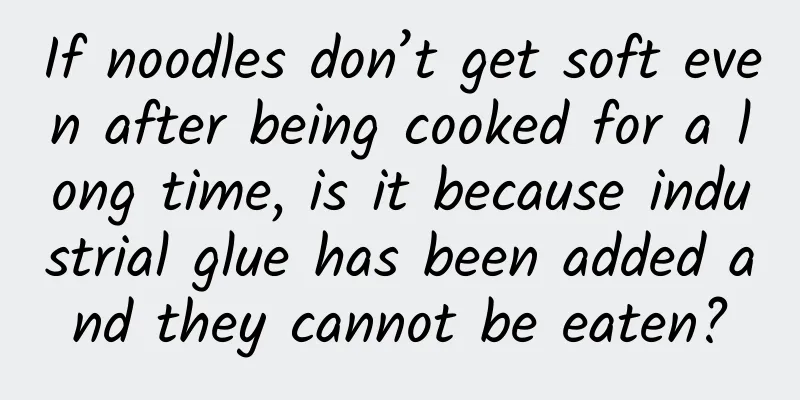Stocking up on antipyretics and buying oxygen concentrators? Here's a guide to updating your home medicine cabinet

|
Guiding expert: Li Dongzeng, chief physician of the Department of Infectious Diseases, Beijing You'an Hospital, Capital Medical University Recently, after the National Health Commission issued 20 measures to optimize epidemic prevention, many places announced the cancellation or temporary suspension of nucleic acid testing for all employees. However, the number of new cases every day is often in the tens of thousands, which makes many people feel uneasy and anxious. In order to prevent problems before they happen, many people began to prepare to stock up on medicines and supplies in case of emergency. So, what medicines can be stockpiled for emergency use in the face of the novel coronavirus? What issues should be paid attention to when taking medicine? Is it necessary to buy supplies such as blood oximeters and oxygen concentrators? In response to the questions that everyone is concerned about, NetEase Health specially invited Li Dongzeng, chief physician of the Department of Infection at Beijing You'an Hospital Affiliated to Capital Medical University, to answer them . Come and have a look! After learning about what medicines you can always have on hand, everyone must have some questions about medication and prevention. In this regard, NetEase Health also consulted Director Li Dongzeng. Let us take a look! 1. Can drugs that relieve different symptoms be taken at the same time? Li Dongzeng: It is not recommended to take medicines that relieve different symptoms at the same time; for medicines that relieve the same symptoms, choose one to take and do not take them alternately. For example, if you have fever, headache, sore throat, and muscle aches at the same time, you can choose only one antipyretic analgesic; if you do not have a fever but only have a severe headache, you can also choose only one antipyretic analgesic. Be sure to read the instructions before taking any medicine. For example, the most commonly used ibuprofen and acetaminophen are both antipyretic and analgesic drugs. You should choose one of them and do not take them at the same time or alternately. There are also some compound cold medicines, such as Tylenol and Baijiahei, which often contain antipyretic ingredients as well as ingredients for treating nasal congestion, runny nose, and sore throat. If compound cold medicines and antipyretic analgesics are used repeatedly (for example: taking Tylenol and acetaminophen at the same time), the antipyretic ingredients will be repeated, which can easily lead to drug overdose and pose a certain risk. Even some Chinese herbal cold medicines contain antipyretic ingredients from Western medicine, so be sure to read the instructions before taking the medicine. If you are not good at reading instructions, it is best to follow the principle of choosing only one, or consult a doctor and do not use the medicine repeatedly. 2. If multiple symptoms occur, which medication should be taken first? Li Dongzeng: If you have multiple symptoms, such as fever, sore throat, nasal congestion and runny nose, you can choose compound cold medicine, such as Tylenol (Fenomeline), the ingredients of which can often relieve multiple symptoms. In addition, some Chinese patent medicines can also be used. It is still important to avoid mixing them, and only choose one. 3. If people who have not been vaccinated with the new coronavirus vaccine develop symptoms, can they also take medicine on their own? Li Dongzeng: People who have not been vaccinated with the new coronavirus vaccine can also take medication if they develop symptoms, because even if they have not been vaccinated and are infected with the new coronavirus, influenza or the common cold, most people can recover on their own. During the period of waiting for self-healing, they can prioritize relieving symptoms by using some over-the-counter drugs. However, it should be noted that if the symptoms are significantly aggravated, or have lasted for more than seven days without any signs of relief, you must go to the hospital for treatment. If you have persistent high fever, severe cough, severe headache, drowsiness, or rapid breathing and breathlessness, you need to go to the hospital in time. To sum up: if the symptoms are mild, you can take medicine at home and observe; if the symptoms are severe and continue to worsen, seek medical attention in time. 4. Can honey water be used to relieve cough symptoms? Can it prevent viruses? Li Dongzeng: To relieve cough symptoms, you can drink honey, but it is not recommended to mix it with water. Drinking honey directly relies on the viscosity of honey to help the respiratory tract secrete some secretions to dilute the phlegm, making it easier to cough up the phlegm and prevent difficulty in coughing up phlegm due to the viscosity of the phlegm. Honey itself has no antiviral effect. The main purpose of drinking honey is to relieve the symptoms of coughing and difficulty in expectorating. 5. Can gargling with salt water relieve sore throat? Can it prevent the new coronavirus? Li Dongzeng: If you have symptoms of sore throat, gargling with light salt water can relieve the pain to a certain extent, but it cannot have a therapeutic effect. In addition, gargling with light salt water cannot prevent the new coronavirus. Currently, there is no research showing that salt water can inactivate the new coronavirus. 6. Can I drink vinegar, smoke vinegar, chew garlic, hold ginger in my mouth, drip sesame oil into my nose, drink boy’s urine, or drink strong liquor to prevent viruses? Li Dongzeng: No, these folk remedies cannot prevent the new coronavirus, and some of them are harmful to the body. 7. Is it necessary to stock up on antigen self-test kits? How many should I stock up on? Li Dongzeng: The characteristics of antigen testing are convenience and speed, but antigen testing cannot replace nucleic acid testing. The sensitivity of nucleic acid testing is 100 to 1,000 times higher than that of antigen testing. When the antigen test is positive, nucleic acid testing must be done for confirmation. If someone feels that they have accidentally come into contact with objects that may contain the new coronavirus, or are at risk of infection, and do not have the conditions to undergo nucleic acid testing, they can use the antigen test method to test themselves. The frequency of antigen testing should be once a day, not too frequent. Antigen testing is generally used for testing people with high-risk, high-prevalence clustered infections. The general public does not need to scramble for antigen self-test kits, let alone stockpile them. 8. Which thermometer is more convenient and accurate? When should I monitor my body temperature? What temperature should I exceed before taking medicine? Li Dongzeng: If you are measuring body temperature at home, try to choose a thermometer that can measure under the armpit, as the measurement result is relatively more accurate. You can also use a home ear thermometer to measure the temperature of infants and young children. If you are in a public place, use a thermometer or infrared temperature measurement, and try to measure the temperature of your neck, forehead, and wrists. It is not advisable to measure body temperature within 20 minutes after a meal, after smoking, after drinking water, or just after entering indoors from outdoors in cold winter. Generally speaking, if the body temperature is below 38.5℃, you do not need to take antipyretic drugs. You can drink more water and observe. If the body temperature exceeds 38.5℃, you can take some antipyretic and analgesic drugs orally. 9. What is the function of a blood oximeter? Is it necessary to buy one? Li Dongzeng: A blood oximeter measures blood oxygen saturation. It is a non-invasive test. A home blood oximeter can be clipped on the finger to measure blood oxygen, which is used to reflect whether the body is lacking oxygen. For people who are normally healthy, if they suffer from hypoxia due to an acute illness, they will definitely have obvious symptoms, and they usually don't need a blood oximeter to know that they are suffering from hypoxia. For people with basic respiratory or cardiovascular diseases, you can consider buying a home oximeter. These patients may be hypoxic at ordinary times. When acute infectious respiratory diseases occur, whether it is influenza or COVID-19, these patients' hypoxia may be aggravated, but the patients themselves do not feel it obviously. At this time, through the monitoring of the oximeter, the hypoxia state can be detected earlier and more timely, indicating the need for medical treatment. 10. Are oxygen concentrators and ventilators the same type of equipment? In what situations is it necessary to buy one? Li Dongzeng: Oxygen concentrators and ventilators are different. The main function of an oxygen concentrator is to provide oxygen. Home oxygen concentrators are suitable for patients with chronic respiratory diseases, cardiovascular diseases, and heart diseases. If patients usually have hypoxia, especially after activities, they can relieve the symptoms of hypoxia by inhaling oxygen. The ventilator we often talk about generally refers to medical equipment, including non-invasive and invasive ventilators. Its more popular name is ventilator. Non-invasive ventilators are generally suitable for patients with chronic respiratory diseases or sleep apnea syndrome. The mask is buckled on the patient's face to help improve ventilation and inhale more oxygen by increasing pressure. Invasive ventilators are generally used in hospitals. Through tracheal intubation and then connected to the ventilator for ventilation, it plays the role of delivering air to the lungs. There is no need for healthy people to purchase oxygen concentrators and ventilators for epidemic prevention purposes. Finally, Director Li Dongzeng reminded everyone that it is important to remember that: any drug has certain adverse reactions and should be used with caution; any drug has certain indications and should be used according to the symptoms; any drug has a certain expiration date and it is not recommended to stockpile excessive amounts of drugs to avoid expiration and waste. At the same time, remember to wear a mask, wash your hands frequently, pay attention to ventilation, and avoid gatherings of people; vaccination (booster shot) can reduce the risk of severe illness after infection. It is recommended that friends who have not yet received the booster shot do so as soon as possible, especially the elderly. NetEase Health reminds everyone: Fighting the epidemic is everyone's responsibility. Being the "first person responsible for health" is a principle we should keep in mind, whether in an epidemic or in normal times. Let us look forward to a better future together. |
<<: Make way for the super ferocious big cat!
>>: Traveling around the world with carbon
Recommend
What is the best way to soak Cordyceps in water? How many Cordyceps should be soaked in water at a time?
There is a natural food that can prolong life bet...
"The Best Celebrity" is out of the circle! How do Internet celebrities attract attention?
This year, the comedy film "Hot Man" ha...
Xiaohongshu’s promotion strategies and methods!
Speaking of Xiaohongshu, what is the first thing ...
A woman can only produce 400 eggs in her lifetime? Whoever uses them up first will age first?
I believe many people have heard this saying: wom...
5100 words on how to have "live broadcast power"
In the video age, live streaming is one of the mo...
Can leftover shells be used to paint? Archaeologists reproduce Zhongshan Kingdom shell paintings for the first time!
In ancient times, in addition to being used as fo...
Some keys to improve iOS development efficiency
First of all, the title is a bit broad. This arti...
Get APP: Analysis of the operation and promotion strategies behind the development of knowledge service providers
This article takes product status, user growth an...
We published an article in Physics Today, revealing another Nobel Prize-winning contribution of Wu Jianxiong that was buried
From the meeting at Yang Zhenning's home in 2...
CTO Training Camp Guo Jiangliang: Big Data Platform in Baidu Private Cloud and Open Cloud
Guo Jiangliang, R&D manager of Baidu Open Clo...
One article is enough for the year-end marketing plan of wine promotion
How to promote alcoholic products? An article wil...
How much does it cost to customize the Yanbian lighting mini program? What is the price for customizing Yanbian lighting fixtures through the mini program?
The mini program provides convenience for publici...
Earth Day: Abandoned mines left alone? Mountains without mines can also be turned into treasures!
Today is World Earth Day. Our planet has a variet...
Tik Tok Marketing Promotion, How Do Beauty Experts Make Money?
Tik Tok has become a video-watching software that...
How to send lucky bags on Douyin? What is a Super Lucky Bag?
Today I will introduce to you the content about D...









